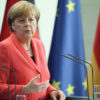Commentary — Israel’s defense minister and its intelligence chief have called for partitioning Syria into ethnic enclaves. The Reuters article below, carried by the Ynet News agency, quotes these Israeli leaders as confirming their close relations with Saudi Arabia and other Arab monarchies that have been trying to topple Syrian President Assad. Turkey’s President Erdogan recently stated that “Turkey needs Israel.” so Israel is hardly the isolated little nation surrounded by mortal enemies, as the Zio-media myth makers constantly portray it.
The fact is that Israel is at the center of a Zio axis that created ISIS in order to overthrow Assad and pave the way for a war against Iran. No matter that such a war would certainly draw in the U.S. and Russia on opposing sides, leading to World War III. Somehow in the insane calculus of Zionism’s messianic madmen this will be good for the Jews.
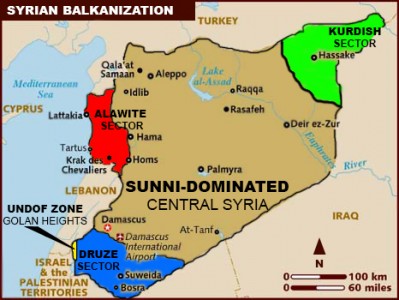
Israel skeptical of Syria ceasefire, eyes partition
Israeli officials at Munich conference: Unrealistic to believe Syria can become united anew, partition ‘only possible solution’.
Reuters
02.14.16, 12:29
Israel voiced doubt on Sunday that an international ceasefire plan for Syria would succeed, suggesting a sectarian partition of the country was inevitable and perhaps preferable.
While formally neutral on the five-year civil war racking its neighbor, Israel has some sway among the world powers that have mounted armed interventions and which on Friday agreed on a “cessation of hostilities” to begin within a week.
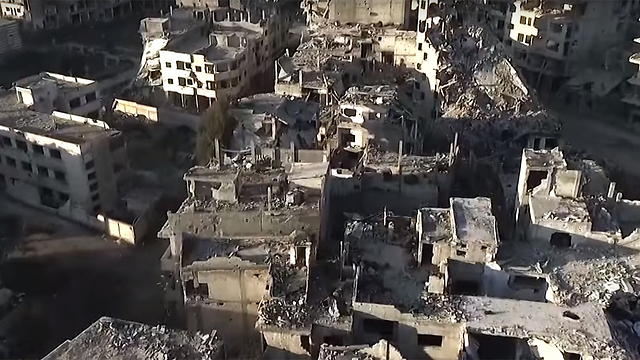
Ruins in Homs, Syria, seen from a Russian drone
The deal, clinched at a Munich security conference, is already beset by recriminations between Russia, which backs Syrian President Bashar Assad militarily and wants to see his rule restored, and Western powers that have called for change in Damascus involving select opposition groups.
Addressing the conference after he met European counterparts and Jordan’s King Abdullah, Defense Minister Moshe Ya’alon said he was “very pessimistic” about the truce’s prospects.
“Unfortunately we are going to face chronic instability for a very, very long period of time,” he said. “And part of any grand strategy is to avoid the past, saying we are going to unify Syria. We know how to make an omelette from an egg. I don’t know how to make an egg from an omelette.”
Referring to some of the warring sects, Ya’alon added: “We should realize that we are going to see enclaves – ‘Alawistan’, ‘Syrian Kurdistan’, ‘Syrian Druzistan’. They might cooperate or fight each other.”
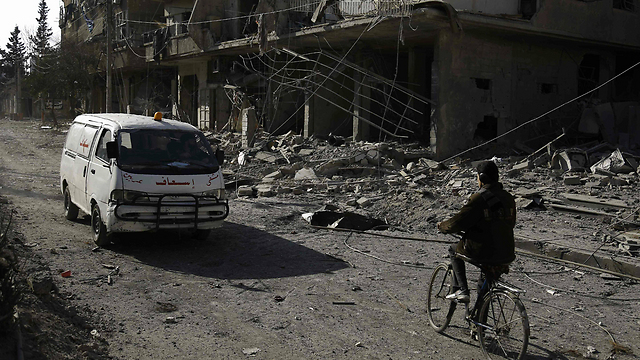
Damascus (Photo: AFP)
Ram Ben-Barak, director-general of Israel’s Intelligence Ministry, described partition as “the only possible solution.”
“I think that ultimately Syria should be turned into regions, under the control of whoever is there,” he told Army Radio, arguing that Assad’s minority Alawite sect had no way to heal its schism with the Sunni Muslim majority.
“I can’t see how a situation can be reached where those same 12 percent Alawites go back to ruling the Sunnis, of whom they killed half a million people there. Listen, that’s crazy.”
Helped by Russian firepower, Syrian government forces and their allies have been encircling rebel-held areas of Aleppo. That would give Assad effective control of western Syria, Ben-Barak said, although much of the east is dominated by Islamic State insurgents.
An Assad victory in Aleppo, Ben-Barak said, “will not solve the problem, because the battles will continue. You have ISIS there and the rebels will not lay down their weapons.”
While sharing foreign concerns about Islamic State advances, Israel worries that the common threat from the insurgents has created a de-facto axis between world powers and its arch-foe Iran, which also has troops helping Assad.
“As long as Iran is in Syria, the country will not return to what it was, and it will certainly find it difficult to become stable as a country that is divided into enclaves, because the Sunni forces there will not allow this,” Ya’alon said in an earlier statement.
At the conference, Ya’alon also met with Saudi Prince Turki al-Faisal, a former ambassador to the US and the former head of Saudi’s intelligence agency, and the two shook hands.
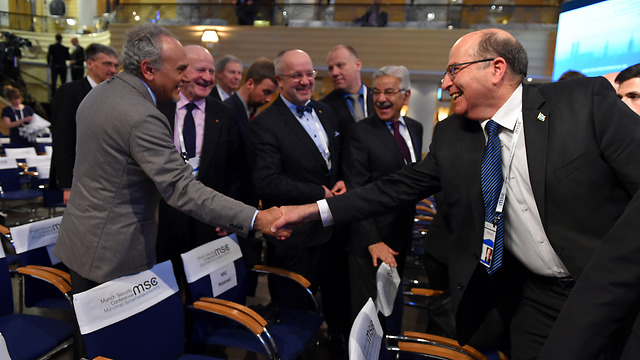
Ya’alon shaking hands with Saudi Prince Turki al-Faisal at the defense conference (Photo: Defense Ministry)
Ya’alon said that Israel had channels of communications with neighboring Sunni Arab countries. “Not only Jordan and Egypt. I speak about the Gulf states and North African states too … For them, Iran and the Muslim Brotherhood are the enemy. They are not shaking hands (with Israelis) in public, but we meet in closed rooms.”

